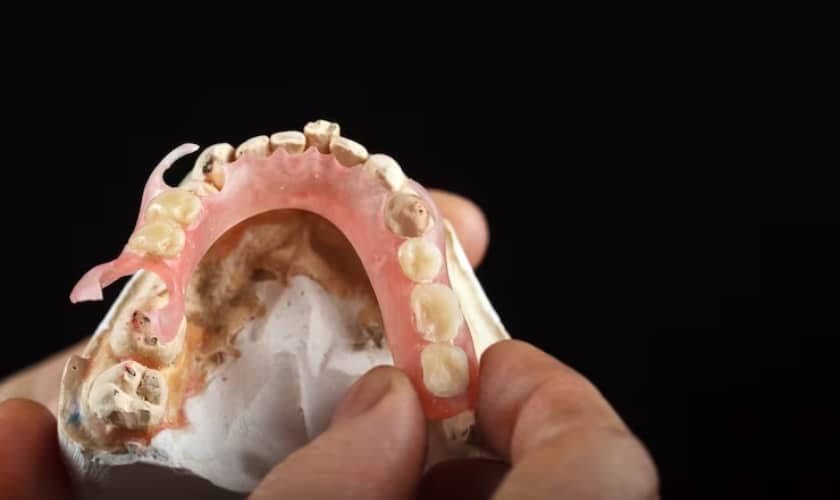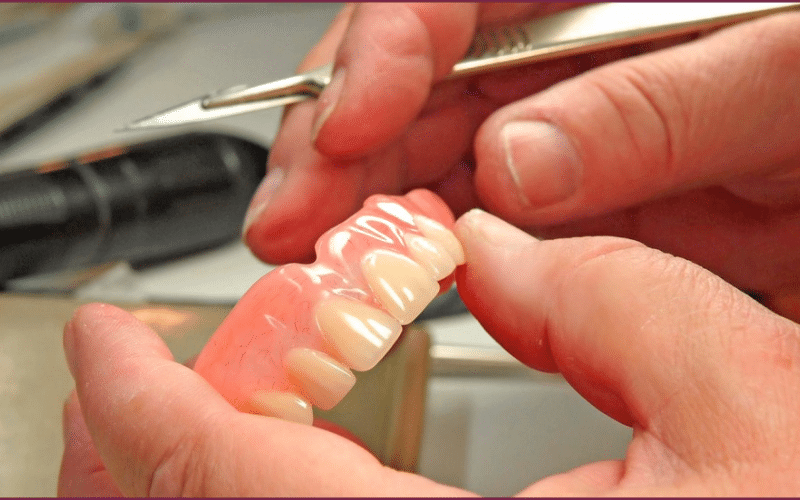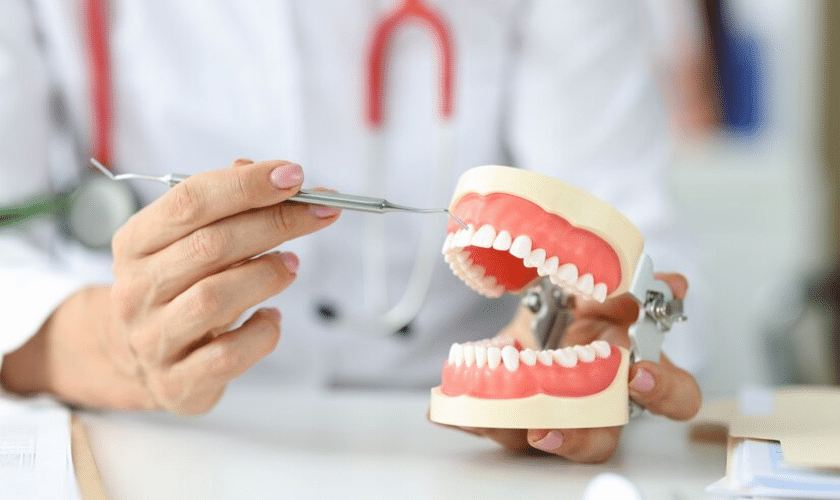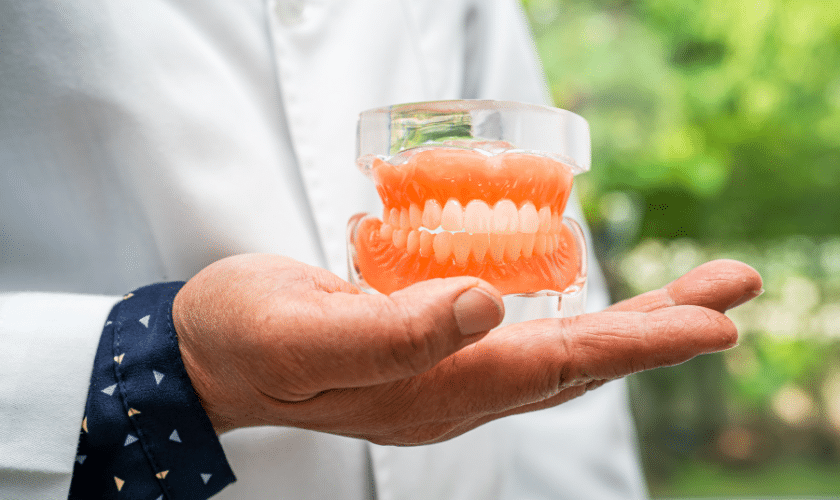
Your dentures play a pivotal role in your daily life, providing you with the confidence to smile freely and enjoy your favorite foods comfortably. They’re not just prosthetic teeth; they’re an essential part of your identity and well-being. However, just like natural teeth, dentures are susceptible to damage. Whether it’s due to wear and tear, accidents, or unforeseen circumstances, knowing how to navigate damage to your denture is crucial for preserving its functionality and ensuring your ongoing oral health remains intact.
Inspect Regularly
Regular inspections are a fundamental aspect of denture care. Over time, wear, tear, or even minor accidents can lead to cracks, chips, or other signs of damage. These seemingly small issues can escalate if addressed, potentially compromising the fit and functionality of your dentures. Therefore, dedicating time to thoroughly examine your dentures for any abnormalities is crucial. This proactive approach allows you to catch problems early and seek timely solutions from your dentist.
Handle with Care
The way you clean and handle your dentures significantly impacts their longevity. Using a soft-bristled toothbrush and a non-abrasive denture cleaner is essential. Harsh chemicals, hot water, or abrasive materials can cause damage, leading to cracks or warping. Treating your dentures delicately during cleaning and handling helps maintain their structural integrity, ensuring they remain functional and comfortable to wear.
Immediate Response to Damage
Finding damage to your dentures can be concerning, but panicking isn’t the solution. Swift action, however, is necessary. If you notice any damage, promptly remove the dentures to prevent potential harm to your oral tissues. Then, schedule an appointment with your dentist. Avoid the temptation to perform DIY repairs, as these attempts could exacerbate the issue and make professional denture repair more challenging.
Dos and Don’ts of Temporary Fixes
While awaiting professional assistance, the inclination to resort to temporary fixes might arise. However, avoid using household adhesives or glue. These products contain chemicals that can be harmful if ingested and might alter the fit of your dentures. Instead, store the damaged dentures safely and keep them moist to prevent any further warping or damage.
Contact a Professional
Seeking help from your dentist or prosthodontist is crucial when dealing with denture damage. These professionals have the expertise to assess the extent of the damage and provide suitable solutions. Attempting repairs on your own can worsen the situation and potentially render the dentures unusable, making professional guidance essential.
Avoid DIY Adjustments
It’s vital to refrain from making any adjustments or modifications to your dentures without professional guidance. DIY alterations can disrupt the fit and function of the dentures, leading to discomfort or even oral injuries. Rely on your dentist’s expertise to ensure proper adjustments without compromising the integrity of the dentures. It’s essential to highlight that attempting DIY denture repairs can often worsen the damage, complicating professional repair solutions later on.
Proper Storage is Key
When not in use, store your dentures in a designated case filled with a denture-cleaning solution or plain water. This storage method prevents them from drying out and maintains their shape. Avoid leaving them exposed to extreme temperatures, as this can cause warping or damage, ultimately affecting their fit and function.
Regular Dental Check-Ups
Regular dental check-ups are crucial, even if your dentures seem to be in good condition. Your dentist can identify potential issues early on and provide preventive care, ensuring the longevity of your dentures and your overall oral health. These check-ups are an opportunity for professional evaluation and adjustment, ensuring your dentures continue to fit comfortably.
Emphasizing the importance of seeking professional assistance for denture repairs ensures their longevity and optimal function, safeguarding your smile and oral health in the long term. Effectively managing denture damage requires a balanced approach that involves both caution and immediate action. By adhering to these dos and don’ts, you can confidently handle any denture-related issues that arise. Always prioritize professional guidance and proper care practices to maintain the functionality and longevity of your dentures. Take proactive steps to preserve your smile and overall oral well-being for years to come. Schedule your appointment with dentists in Allen now!









